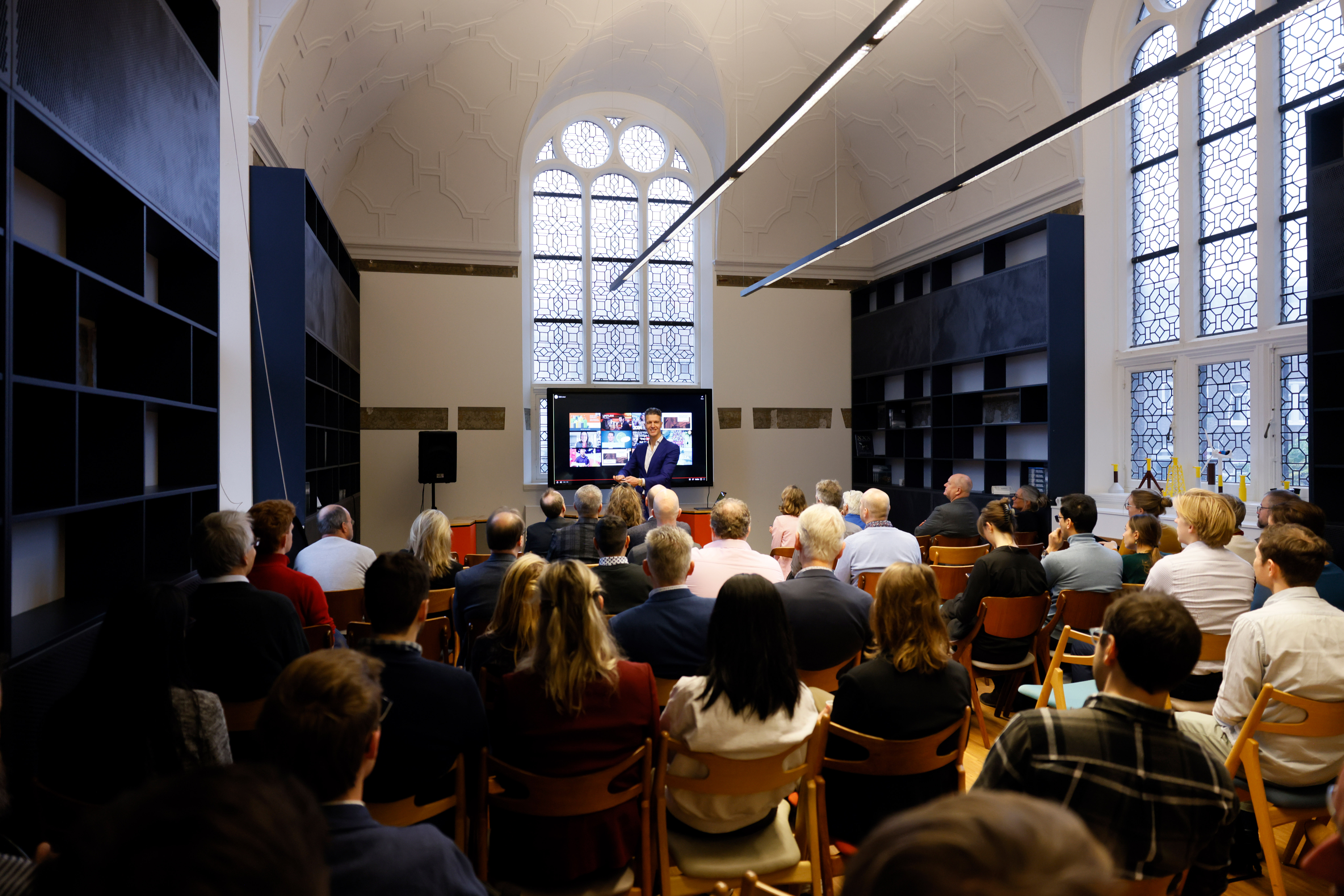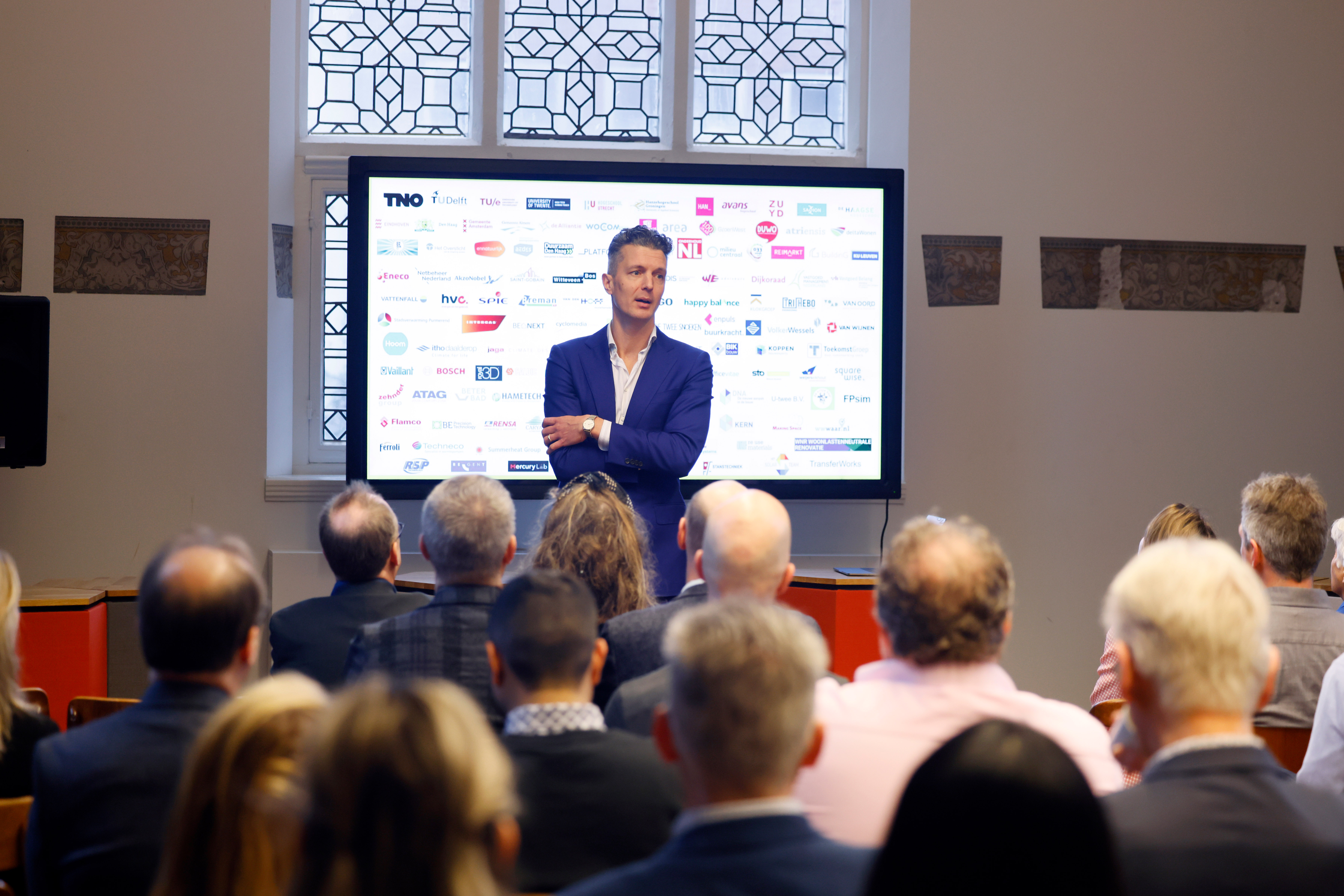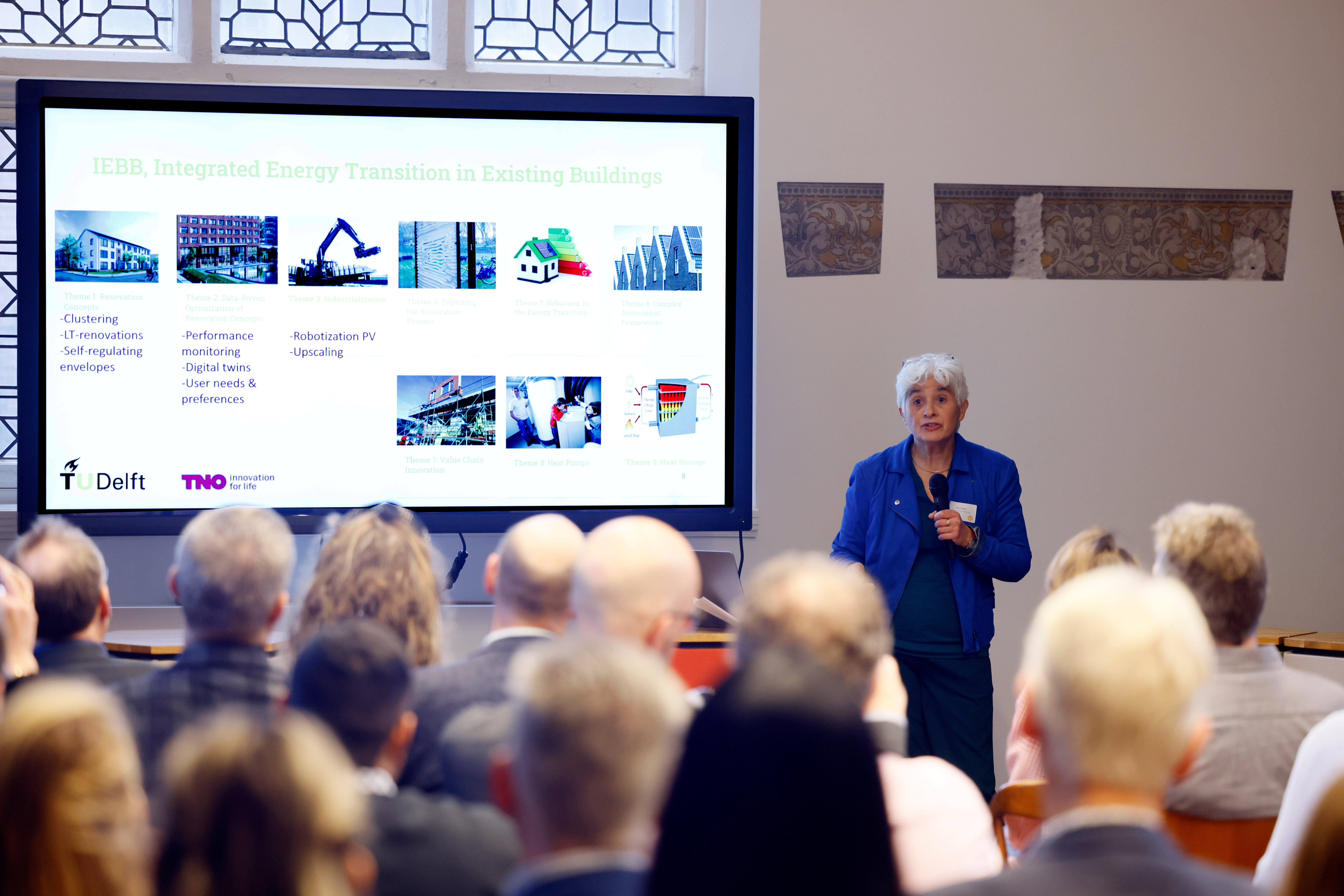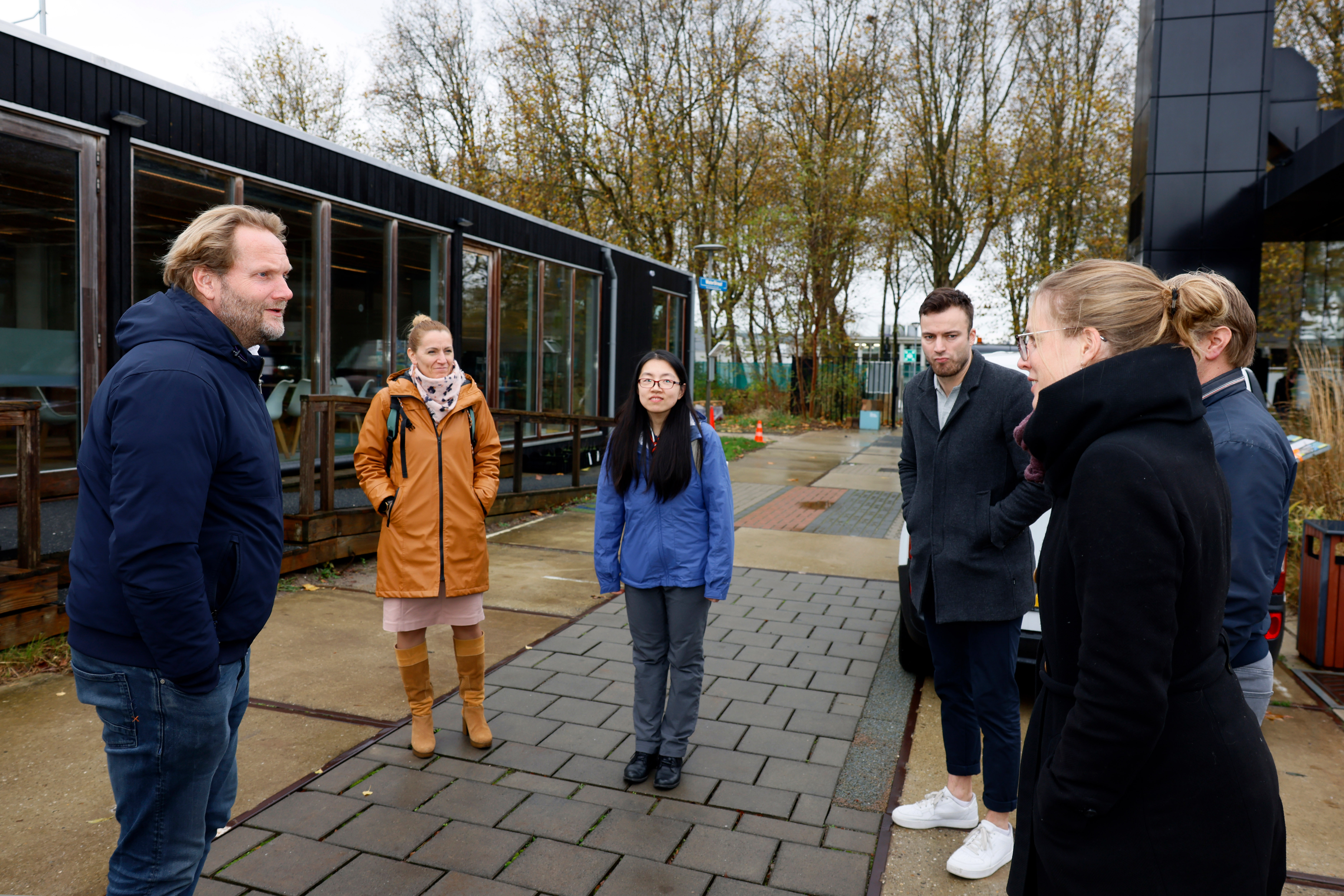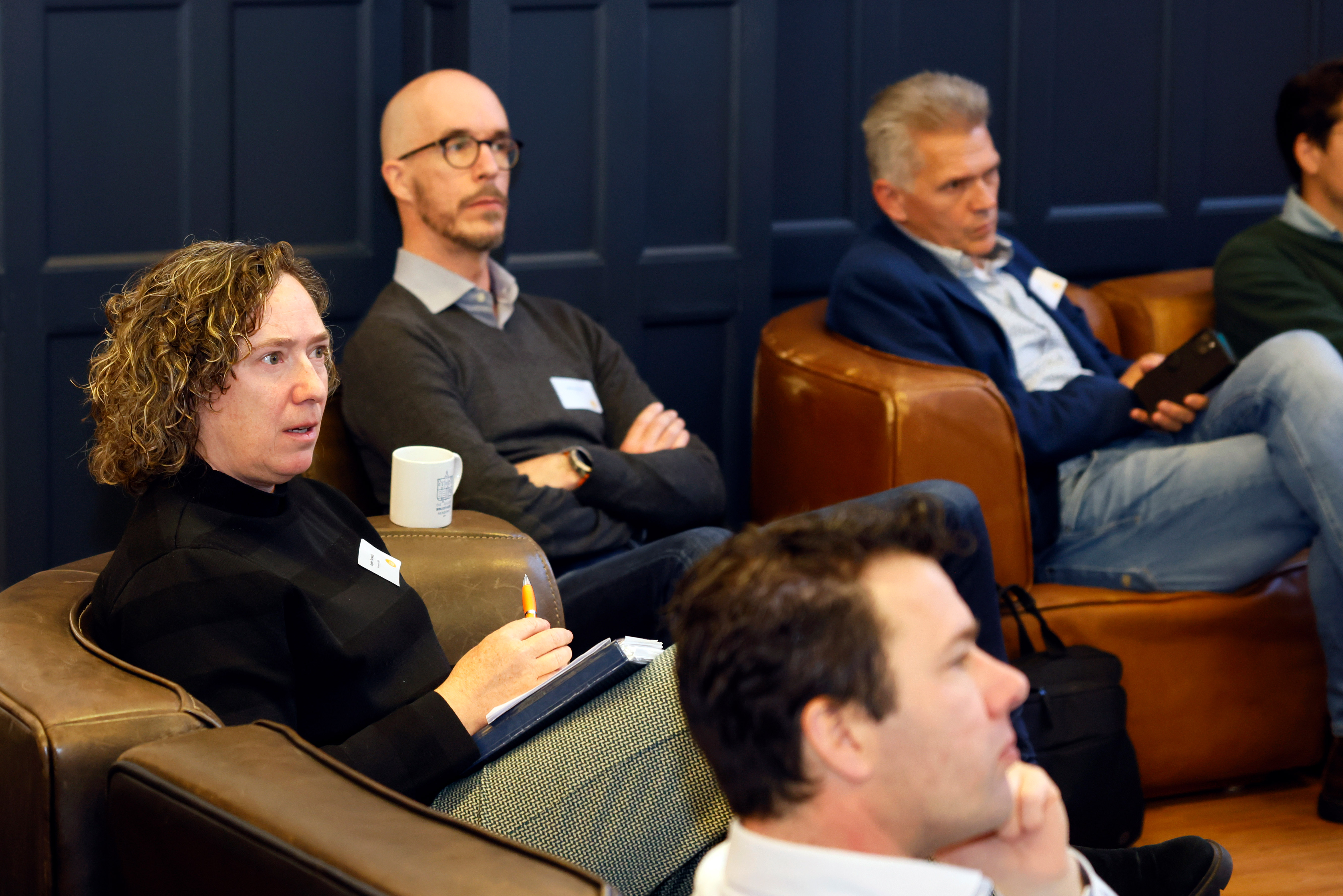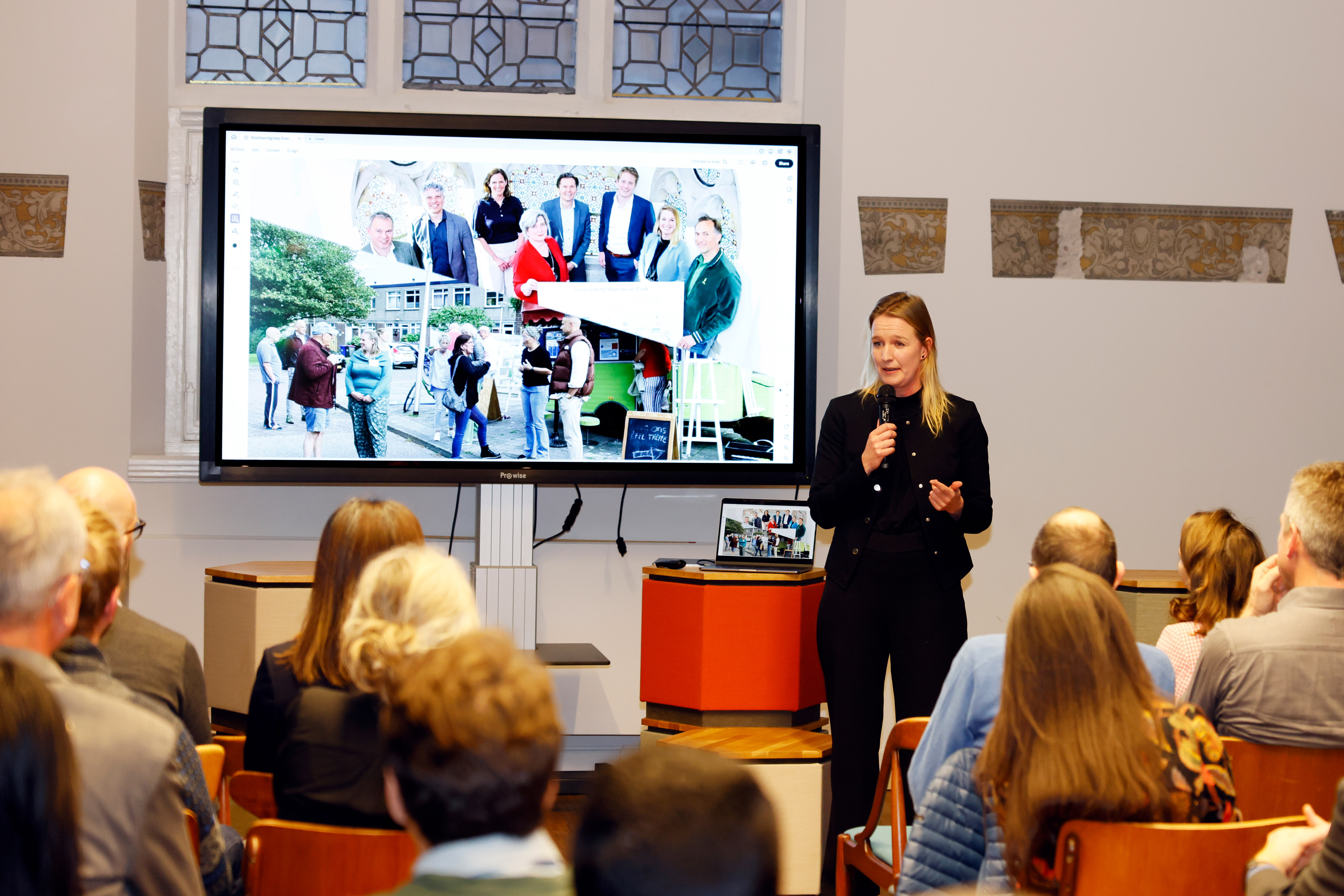UEI Symposium and IEBB Closing Conference Recap
On November 19, the Urban Energy Institute (UEI) hosted its annual Symposium which also served as the closing event for the Integrated Approaches for Energy Renovations in Existing Buildings (IEBB) program.
The Netherlands has set an ambitious target to renovate 200,000 buildings annually to meet its energy goals. Over the past four years, the IEBB consortium has worked to develop innovative and scalable solutions to help achieve this target.
The event provided an opportunity to reflect on the program's goals, successes, and lessons learned. More than 80 participants from industry, government, and academia gathered at The Old Library in Delft to share insights and discuss how to apply the program’s findings in practice.
Key Lessons Learned
The event was dedicated to sharing knowledge, experiences, and fostering idea exchange, with a dynamic lineup of keynote presentations, panel discussions, and breakout sessions, featuring over 30 speakers. Key takeaways include:
-
Mission-Driven Approach: The IEBB consortium exemplifies a mission-driven approach to addressing the energy transition, successfully activating a wide range of parties to contribute to this challenge. The lessons learned from IEBB have already been incorporated into similar consortia funded under the MOOIE program.
-
From Competition to Collaboration: One of IEBB’s core objectives was to build an ecosystem based on collaboration rather than competition among parties. As with a mission-driven approach, fostering collaboration, rather than competition, remains essential to accelerating the energy transition. In practice, however, the need to allocate limited funding often leads to competitive processes.
-
Fast-Tracking Promising Solutions: A key ambition of IEBB was to ensure that successful approaches could be fast-tracked, avoiding the delays of constantly reapplying for funding. More work is needed to identify promising solutions and fast-track them further, rather than impeding their progress.
-
Size and Structure of the Consortium: The IEBB consortium brought together over 100 partners from academia and industry. While this large size was ambitious, it posed challenges in governance, management, and reporting. Smaller, more focused consortia may prove more effective.
-
Cross-Pollination Across Themes: While the IEBB consortium embraced complexity, integrating knowledge across different themes proved difficult. Greater emphasis on cross-pollination and integration is needed. Building a community of practice – both during and after the project — is crucial for long-term success. UEI aims to play a key role in ensuring the lessons from IEBB live on, with experiences from IEBB feeding into new projects like CondoReno.
-
Strengthening the Role of Citizens: While collaboration between industry, academia, and government is essential, it is also crucial to ensure that residents are even better represented and more central in similar programs.
Presentations
The presentations shared throughout the day are available via the following links:
-
Opening Keynote – Transitions by Professor Laure Itard
-
Track 1 – Bundling Renovation Measures
-
Track 4 - How to Get People on Board: Behavioral Insights into Renovation Decisions, Processes, and Use
-
Track 5 - Preparing Homes for District Heating
-
Closing Keynote – Learning by Acting Together by Sustainability Mayor Maaike Zwart
IEBB Wrap-up and Results
As the IEBB program concludes in the coming months, additional results will be shared on the IEBB website and TU Delft’s IEBB research page:
-
IEBB Consortium: https://tki-bouwentechniek.nl/samenwerkingen/iebb-consortium/
-
IEBB Research and Results by TU Delft: https://www.tudelft.nl/en/tu-delft-urban-energy/research/projects/iebb
We would like to extend our sincere thanks to all the speakers, contributors, and participants for making this event both engaging and insightful.
